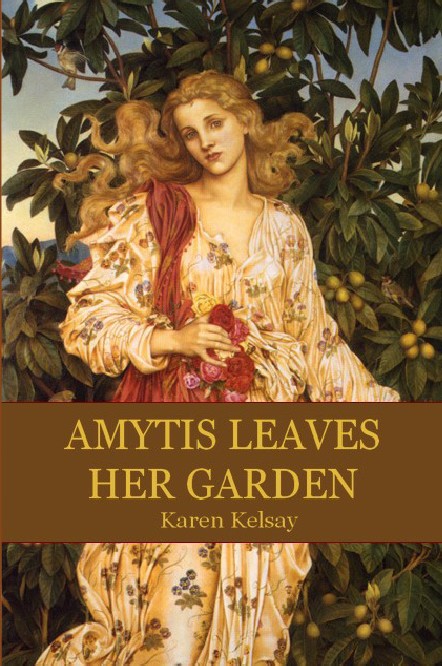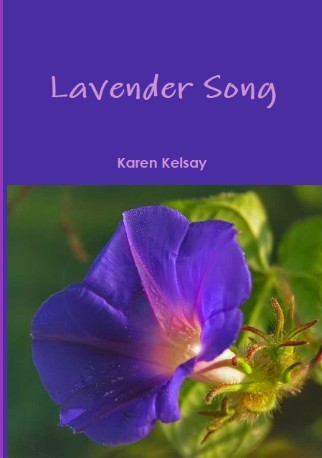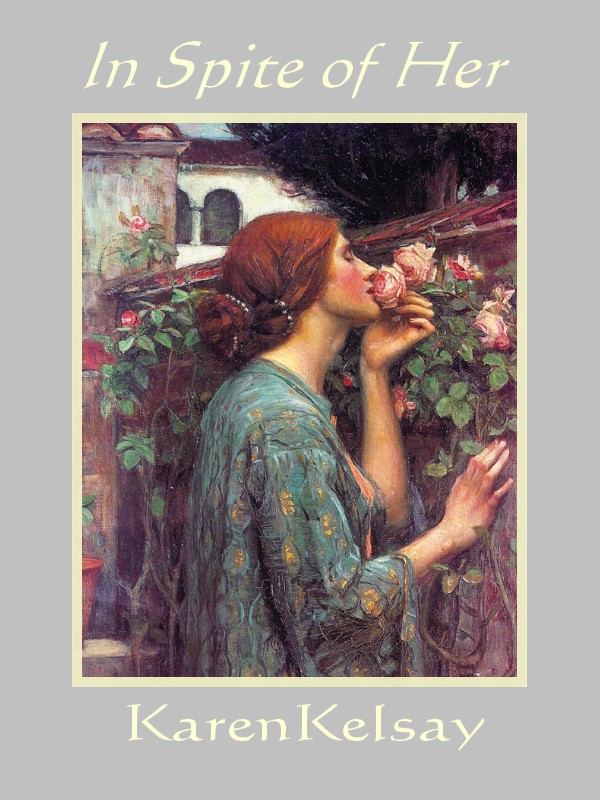Poetry by Karen Kelsay
reviews

Amytis Leaves Her Garden (White Violet Press 2012)
Karen Kelsay's language is unfailingly lush, like “tapestries, embroidered with spun gold,” and it weaves unflinching beauty. In this collection, metaphors of needlepoint abound, whether in “thimble-light” or “knots pulled through a surface of goodwill,” or subtly, through “intricate small lines.” Life is threaded through Kelsay's capable hands that braid the vast art of language into a tactile, palpable thing. In “Chain Stitch,” the speaker describes a touchstone of her formation, her mother's sewing room, the colorful spools of thread neatly arranged, awaiting their dance of creation. There, “long, loose ends dangle over one another,/ frail generations crossing down the wall.” Memories of past garments haunt the poem. The speaker notes how her mother's sewing room left an indelible impression upon her “when nimble fingers shaped my world, and taught me all/ I needed was a pattern, cloth, and thimble.” It is no wonder, then, that Kelsay, in her vivid poetic voice, writes as the Lady of Shalott might, her ear tuned to the cadence of the loom, her eye and fingers capturing each thread of beauty, but aware too of the mirror of longing, “the canvas... in ruins,” where “Everything lies exposed,” where “God is too near.” Just as Adam, Eve, and for that matter, Amytis left their gardens, as we all leave our earthly gardens, wise to pain but holding the memory of “beauty once tenderly maintained,” hoping to one day return, Karen Kelsay's poetry also “cradle(s) clay/ that knows (her) touch... voice... every bone/ and waits for (her) to name the time (she'll) stay.” Read Amytis Leaves Her Gardenand discover carefully-stitched poems. Favorite lines among them are samplers worth a frame.
Review by:
Annabelle Moseley is founder and editor of String Poet, the journal of poetry and music. She appears regularly in such journals as Mezzo Cammin, The Lyric, and The Seventh Quarry. She is the author of A Field Guide to the Muses (Finishing Line Press, 2009) and The Clock of the Long Now.
In Spite of Her (Flutter Press)
by Tyler Chadwick
“Blooms Flourish In Spite of Her”: Karen Kelsay, In Spite of Her (Cheyenne, WY: Flutter Press), 2010. 26 pp. In this latest chapbook of narrative poems, Kelsay explores the relationship between a middle-aged woman and a world that changes and moves on “in spite of her” (“In Spite of Her,” line 11). These poems become acts of mourning mixed with moments of acceptance of and resignation to those things we just can’t change, those losses we’ll never get back. Children grow up, leave an empty nest purled with memories and parental regrets; and no matter how much we want them not to, the seasons change. The world—and our mortality with it—continues its entropic cycle through space. As the title poem suggests, critical language hurled at us when young can shape our self-conceptions for a lifetime. And yet, hope also resides in these elegies: in spite—even because of—the critical words we may carry for a lifetime, we can master skills we once struggled at and become good people. A new generation of kin—whether blood-related or just neighbors looking for a more mature presence in their lives—can give us the chance to try again what we feel we failed at the first time around. We can find redemption from regret. And despite the inevitability of death, there is beauty here, witnessing that God is near, even if a bit “too near” at times for our own comfort (“Autumn Ambivalence,” line 18).

Lavender Song (Fortunate Childe Publications, 2011)
Oh, to live in a world where nasty modernism never took place: where rivers never flowed with dark undercurrents, where dragonflies never alighted flowering manzanitas, and where a bloody axe in the attic never found its way into a poem. Such is the world we find in Lavender Song, the latest collection of verses by the California poet Karen Kelsay:
Among the Boughs
Tonight, the slow release of summer rain
sweeps through my pear tree. Gentle is the sound,
the metronomic lullaby that rolls
across each limb and patters on the ground.
Outside my room, traversing streamlets run
along the open pane—I try to count them all.
And leaves are soaked a darker green, while buds
appear to peek between the lattice wall.
The sent of blossoms filters through my screen.
I lie awake, yet, caught up in the romance
among the boughs, where whispers hum to me,
and all my evening thoughts have learned to dance.
Of course, this is a blue-haired projection, a neo-victorian poetry that prefers the well-kept garden to the overgrown forest, Eden to the fallen world, harmony to cacophony.
